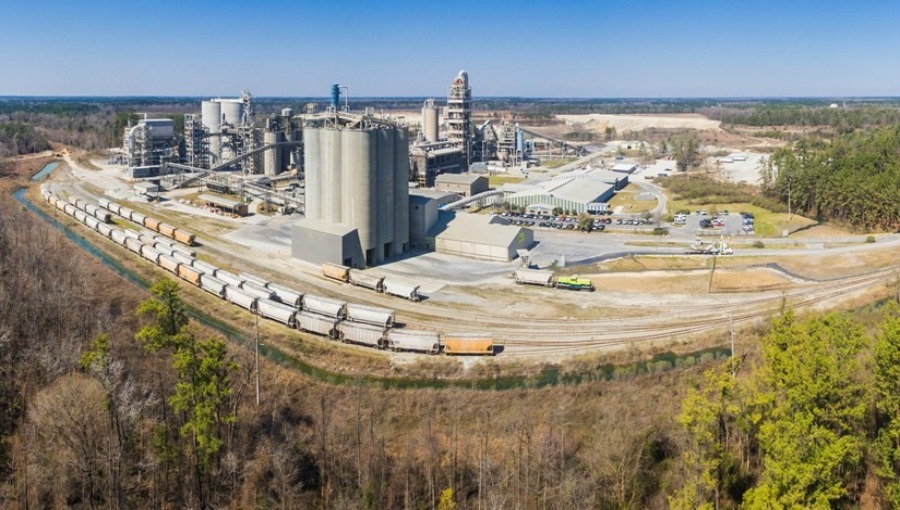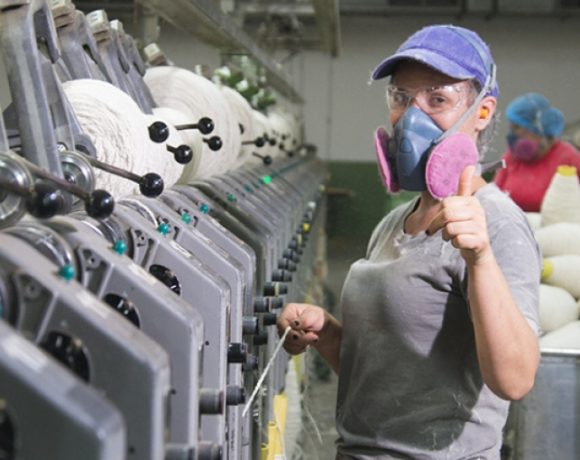Cementos Argos First-Half 2017 EBITDA Drops 26% Year-on-Year, but 2Q Rebounds

Medellin-based multinational cement giant Cementos Argos reported August 11 that its first-half (1H) 2017 earnings before interest, taxes, depreciation and amortization (EBITDA) fell 26% year-on-year, to COP$641 billion (US$216 million).
Revenues dipped 4% year-on-year, to COP$4.2 trillion (US$1.4 billion), but second-quarter (2Q) net income rebounded over the first quarter, to COP$48 billion (US$16 million), indicating “better prospects in the market in Colombia . . . as well as a greater contribution to the results of the business coming from the United States,” according to Cementos Argos.
Through 1H 2017, Cementos Argos saw 73% of its corporate revenues generated in U.S. dollars, the company added.
Volumes of cement delivered rose 15% year-on-year, to 8 million tons, but concrete shipments dipped 7% year-on-year, to 5.4 million cubic meters, according to the company.
“The good results obtained in the U.S. and in the Caribbean and Central America far outweigh the challenges we are facing in the Colombian market,” said Cementos Argos president Juan Esteban Calle.
“As of June 30, 73% of revenues and 77% of EBITDA were generated abroad, in dollars or in highly dollar-denominated currencies. Additionally, we expect a better second half in the local [Colombian] market as a result of growth in shipments to 4G [fourth-generation highway construction] projects and the recovery in consumption that should be presented as a result of the reduction in interest rates,” he added.
As of June 30, Argos USA generated US$759 million in revenue and US$99 million in EBITDA, “in line with expectations announced by the company in early 2017,” according to the company.
“Argos supplies cement and concrete to important works such as Procter & Gamble in West Virginia, Liberty Mutual in Texas and State Farm in Atlanta, and is a key supplier in the construction of the Atlanta Falcons stadium, where ‘Super Bowl 53’ will be played in February 2019,” the company added.
In Colombia, Argos is already involved in 39 of the 56 awarded “4G” highway construction projects and is bidding on another 46 projects currently under negotiation, according to the company.
At mid-year 2017, Colombian highway and infrastructure projects represented 28% of company revenue and 23% of EBITDA, according to Argos.
In its Caribbean and Central America markets, Argos recorded cement and concrete supply growth of 7.6% and 7.5%, respectively, compared to the first half of 2016.
“Honduras and Panama continue to be the main drivers of this region,” according to Argos. “The company’s participation in key projects for the development of the region include the European space station in French Guiana, the third bridge over the Panama Canal, the wastewater treatment plant in the Dominican Republic, the Civic Government Center in Honduras, the Royalton Hotel in St. Lucia and the Nobo Hospital in Curacao, among many others.
“Cementos Argos reached additional milestones during the semester, such as the opening of a new mill in San Lorenzo, Honduras, the purchase of an integrated cement plant in Puerto Rico, the launch of new products such as advanced concrete and cement and integration of the new plant in West Virginia, among others,” the company added.
Grupo Argos Sells Port Stake to Goldman Sachs
Meanwhile, parent company Grupo Argos announced August 11 that it has sold its 50% stake in the “Compas” ocean port facilities to an affiliate of U.S.-based investment banker Goldman Sachs.
The deal nets Argos US$137 million, a 2.5-fold return on investment since 2012, when it acquired the stake from affiliate Cementos Argos. In addition, the transaction is equivalent to 25 times EBITDA generated by Compas in 2016, according to Argos.
“Grupo Argos, through its investment in Compas, managed to transform a group of terminals –mainly bulk carriers dedicated mostly to the import and export of cement and coal — into integrated logistics and multipurpose [terminals] with top national and international allies such as APM Terminals (Maersk group) and the Singapore Port Authority,” according to the company.
“This transaction consolidates Grupo Argos as a matrix of investments in infrastructure focused on the cement, energy and highway concessions and airports businesses, maintaining financial flexibility that allows it to efficiently manage its capital,” added Jorge Mario Velásquez, president of Grupo Argos.
















